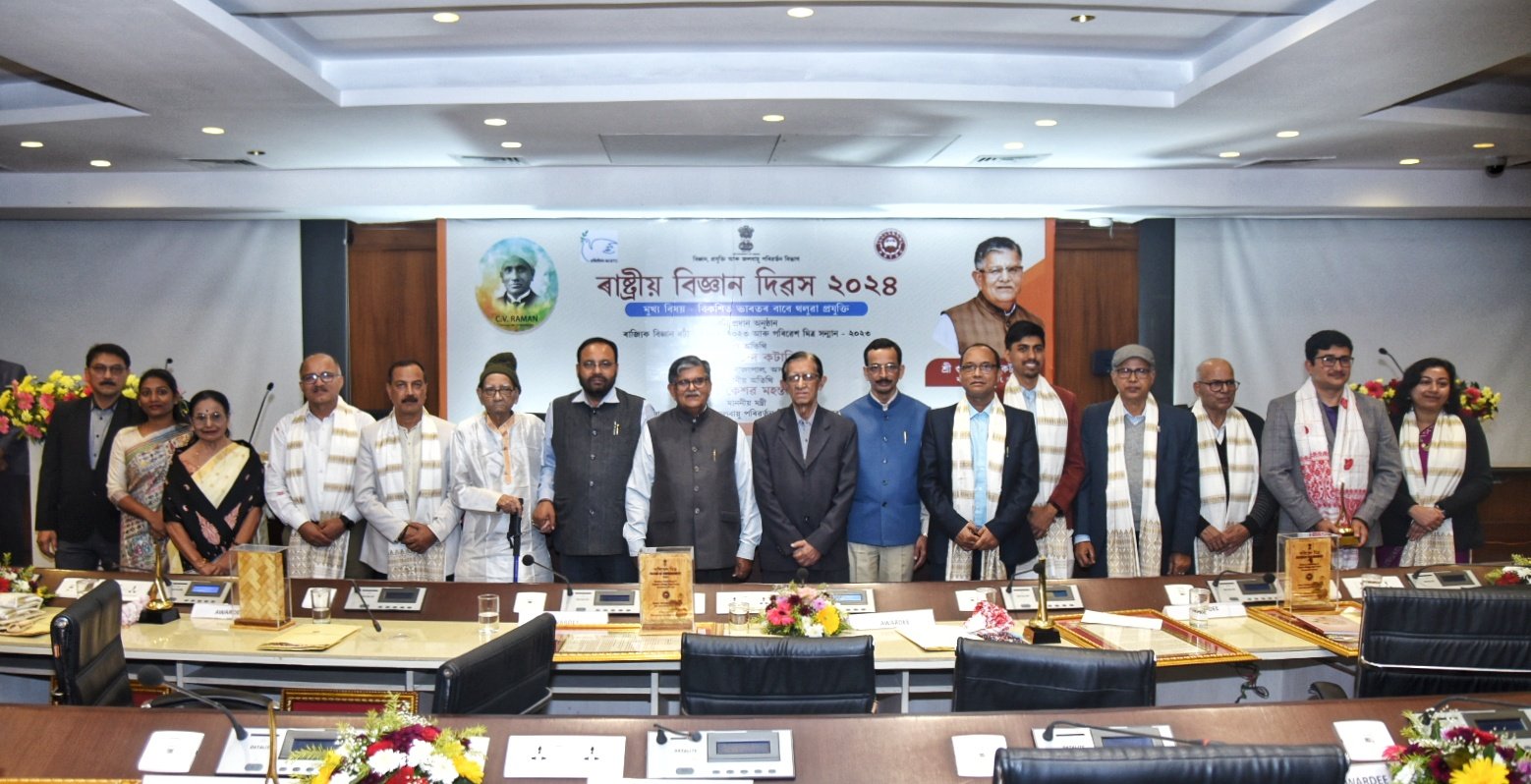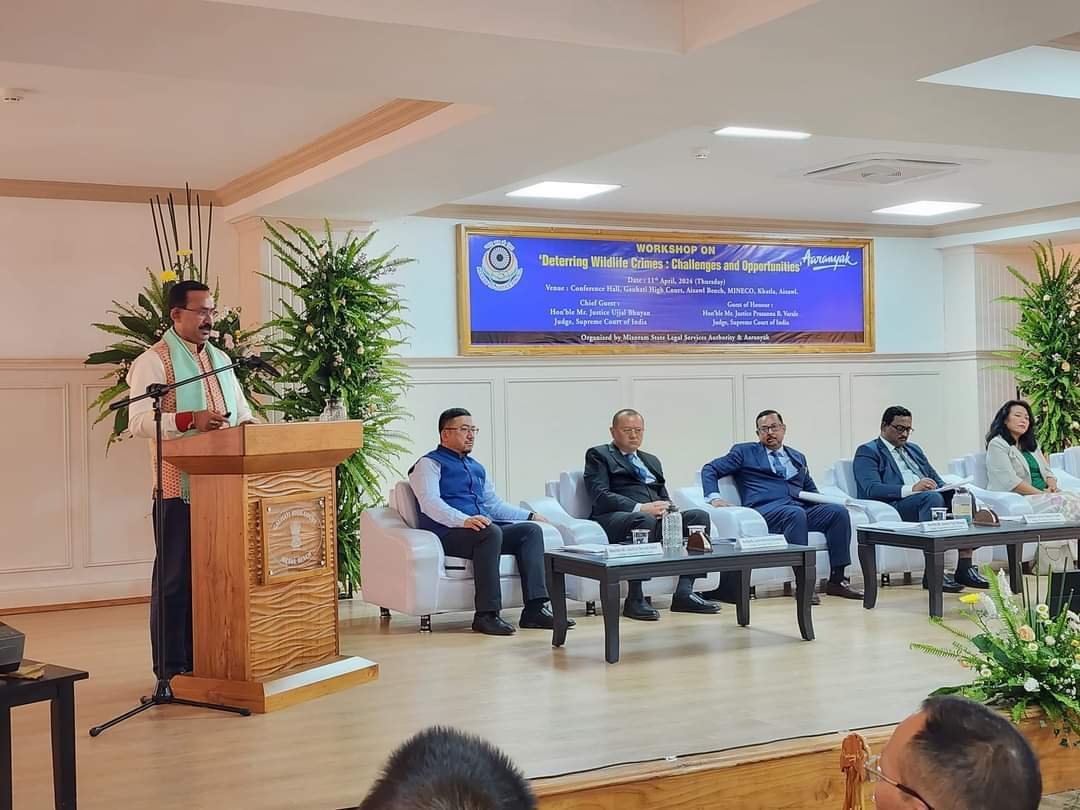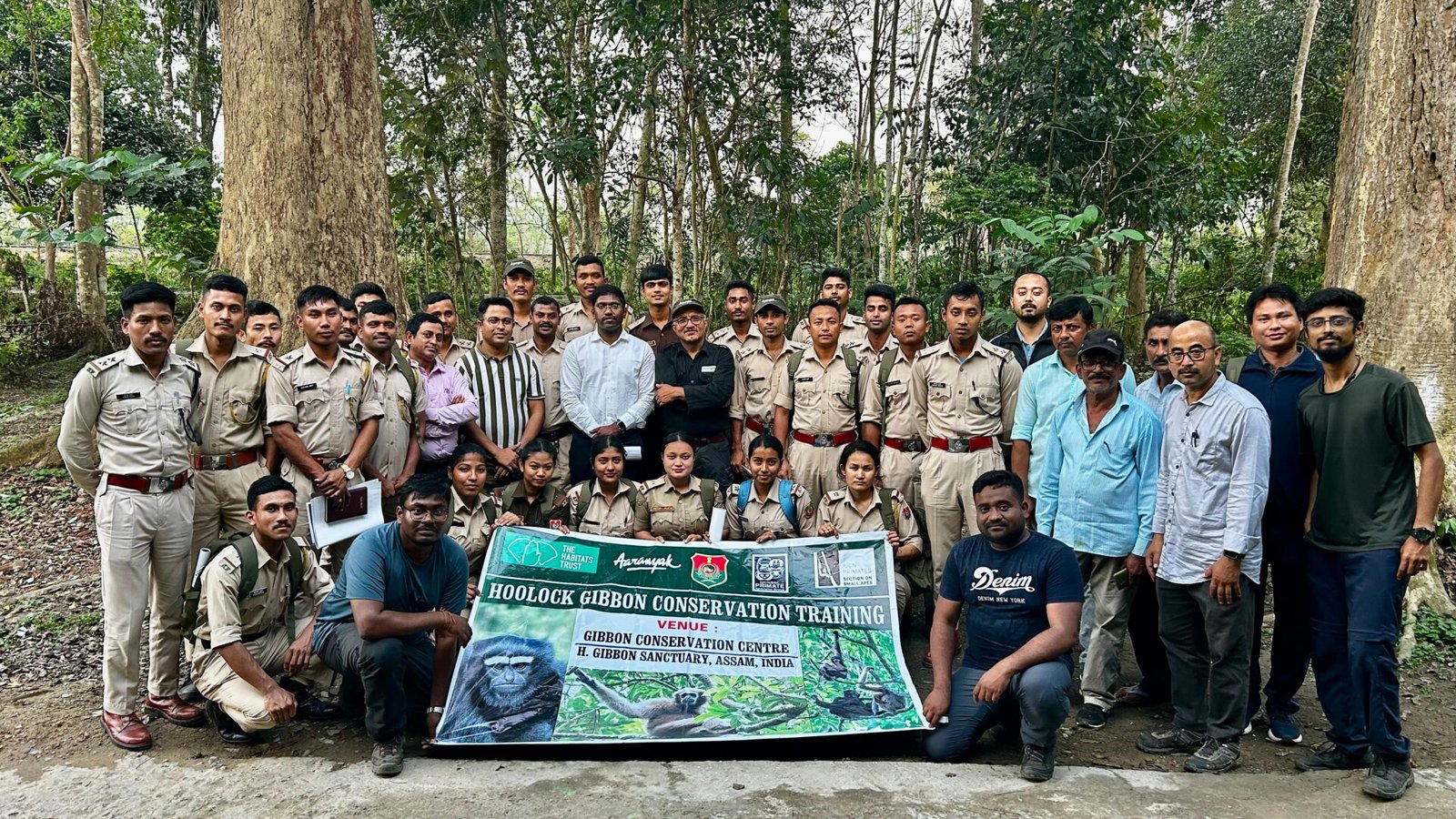HT Bureau
GUWAHATI, April 21: Students too are expected to play a pivotal role in checking wildlife crimes by disseminating information among peer groups and masses as a whole about the importance of every species on the earth.
This was the message driven home by Aaranyak during a sensitisation workshop on wildlife crimes held among the students of the Zoology department in the University of Science and Technology Meghalaya (USTM) on Thursday.
Attending the workshop as the chief guest, the divisional forest officer (DFO) of Meghalaya, Gavade Sachin Shankar, IFS, underlined the immense importance of the rich biodiversity inclusive of a wide range of wildlife species in the global perspective and need for cooperation of all sections of the society in protecting wildlife in the region.
He said international rackets of wildlife traders use poor villagers and collaborators and hungry/needy poachers to commit wildlife crimes in the north-eastern region and called upon all sections of the society including students to remain alert about.
Internationally acclaimed rhino conservation expert and a noted wildlife biologist Dr Bibhab Kumar Talukdar who is also the CEO and secretary general of Aaranyak (www.aaranyak.org), called upon the students and researchers to educate themselves on law in vogue to prevent wildlife crimes which has assumed an alarming proportion all over the globe.
He said north east India is a biodiversity hotspot because of its unique altitudinal gradient that comprises different bio geographic zones containing different types of wildlife habitats which have led to prevalence of diverse wildlife fauna and flora in the region.
He said since wildlife crimes are committed in collusion with arms smugglers and rebels (in some cases) the phenomenon is considered a threat to national security now and requires a concerted effort of all sections of the society to prevent it.
The resource person explained how the global illegal wildlife trade is linked to insurgency and clandestine arms trades on the globe.
The police personnel were sensitised on how dealing with wildlife crimes and violation of environment protection laws are as important as tackling usual crimes and maintaining law and order in the society.
Dr Bibhab Kumar Talukdar, the CEO and secretary general of Aaranyak, who is also the chair of Asian Rhino Specialist Group of the IUCN and Asia coordinator of International Rhino Foundation, made a presentation on overall wildlife conservation scenario in global and local perspectives and its link to illegal arms trade and insurgency.
He highlighted the importance of India for being one of the 36 biodiversity hotspots in the world. “Northeast India has different altitudinal gradients from flood plains to snow-capped mountains, which is considered a big advantage because there exist different types of habitat at different altitudes. The region is home to nearly 10,000 of plant species, 980 bird species, 300 mammals, one of rarest primate on the earth and 175 reptiles of which 40 are endemic and lots of other species including amphibians and freshwater species. Because of its rich biodiversity, the region needs special attention in terms of resources documentation and conservation,” he said, adding it is a social responsibility for all enlightened and empowered ones to protect the biodiversity.
He explained various reasons behind the high incidence of rhino hunting in the region and mentioned that the routes of smuggling are identified and a report of the same is submitted to CITES to put pressure on those countries where trading in wildlife is still legal.
Dr Jimmy Borah, senior manager of the Legal and Advocacy Division of Aaranyak, in his deliberation on illegal wildlife trade raised the alarm over the international dimension of it.
Underscoring that study and monitoring of illegal wildlife trade and route is very essential Dr Borah listed the following areas to be focused for protection of wildlife — close coordination of the stakeholders and enforcement agencies and NGOs; international cooperation; capacity building of the frontline forest staff, advance equipment, regular follow up of the cases and increase of conviction rate.
Ivy Farheen of Aaranyak making a detailed presentation as a resource person in the workshop on various types of wildlife crimes prevalent in the north-east region, explained various modus operandi adopted by elements and rackets involved in killing precious wildlife. She also enlightened the student audience about various penal provisions under the existing Wildlife Protection Law against each type of such crimes on the basis of species targeted.
The students were engaged in an elaborate interactive session by the resource persons at the end of the workshop and answered all questions raised by the participants in the workshop.
Earlier, head of the Zoology department of the USTM, Dr D K Sharma inaugurating the workshop explained the purpose of it while Dr R K Sharma, adviser to USTM and B K Das, director (Administration) of the varsity said that the workshop would benefit the students immensely as they would get enlightened on a very important issue related to sustenance of the rich biodiversity in the region.







